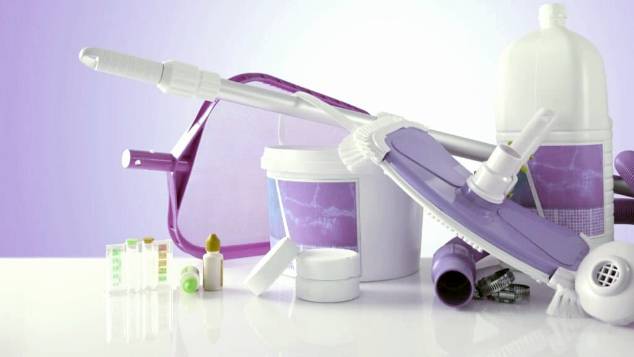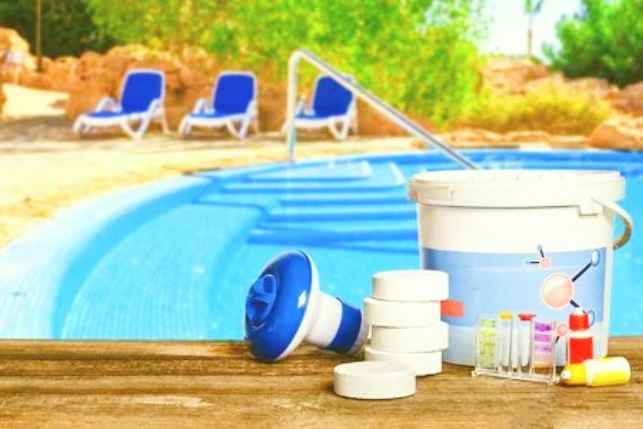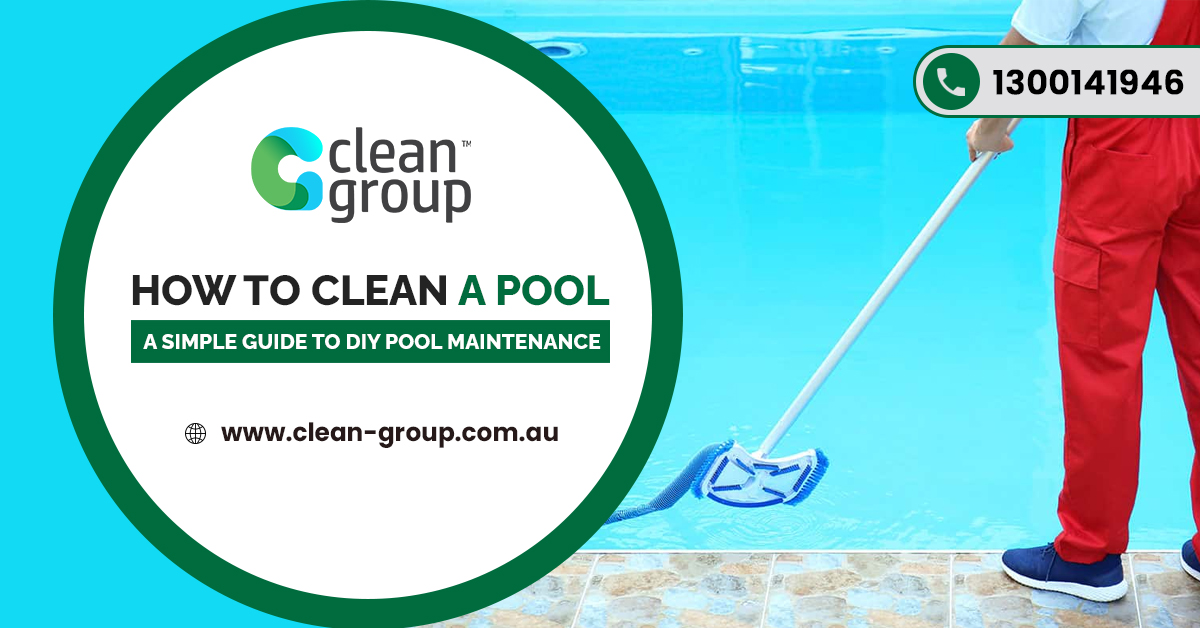There are plenty of great things about living in Australia, but few compare to the luxury of having your own outdoor swimming pool. Those hot tropical summers that so much of the country experiences each year are made all the more glorious with a dip in the backyard.
What is not so glorious is algae or pool scum- it is certainly one way to ruin a summer afternoon. DIY pool cleaning does not have to be a mammoth task if you keep on top of things throughout the year.
Here is a simple guide to commercial cleaning an outdoor pool and a few top tips on how to make it easier.
What Equipment Do You Need?

- Water test strips (for checking the current chemical levels)
- Various pool chemicals (PH and alkalinity balancers)
- A pool brush and skimmer
- Good quality pool vacuum
Five Steps to Basic Pool Cleaning
The necessary steps for pool cleaning depend on how dirty it is. If you have a serious algae problem you need to do a lot more than someone with a little bit of dirt on the floor.
Running simple weekly maintenance on your pool is the best way to keep bigger issues at bay and avoid high costs and big jobs. This five-step guide is a basic but effective solution for regular pool cleaning.
Step One: Get Rid of Debris
You need to get rid of any items, trash, or other debris lying in or around the pool. First of all, it is a safety hazard for swimmers, and secondly, it may damage your vacuum or filter.
If you wouldn’t try to hoover up off the carpet, then don’t do it in a pool! Remove twigs, leaves, stones, and the rest. An easy way to do most of this job is with a pool skimmer, but you may have to get wet if anything has sunk to the bottom.
Step Two: Scrub and Vacuum the Surfaces
Algae cling to the walls and floors of a swimming pool. Even if you don’t see it, the spores settle there, waiting for an opportunity to grow. If you do not scrub all the surfaces regularly, your pool could end up overrun with algae and sludge.
Once you thoroughly scrub everything, send in the pool vacuum to suck up anything now floating around in the water. There are many vacuums for pools to suit a range of budgets, but it is well worth investing in a good one.
Step Three: Check the Filter
Filters work hard in outdoor pools, and they need regular maintenance to continue doing their oh-so-important jobs. You should check the pool filter at least once a month and clean it even more often.
Get into the habit of cleaning and backwashing your filter as part of your weekly pool maintenance routine, and it is likely to last far longer.
Sadly, no filter lasts forever, and it will need changing at some point. If you’re not 100% sure how to properly change it, ask a professional. Many modern pools in Australia have easy-change filters, so take a quick look at the manufacturer’s guide first.
Step Four: Test the Water and Treat as Needed
Whether you have a saltwater or chlorinated pool, the water needs chemicals to stay safe for swimmers. Salt pools are more common in Australia and have fewer chemicals, but they still need some.
You should use professional-grade test strips to monitor the chemical balance of your pool every week. Check the PH balance and the alkalinity levels and treat the water according to the results.
Again, this is a fairly simple task once you get the hang of it, but if you are not completely confident, ask for assistance from someone who is.
Step Five: Run the Pump and Wait
A freshly cleaned, newly balanced pool needs a bit of time to regulate. Keep your pump running while you clean and leave it on for a little longer to fully circulate the chemicals and filter out any remaining dirt.
You should wait at least 30 minutes, but an hour is better if you added chemicals. If you used calcium chloride during the cleaning process, do not swim for four hours afterwards, and run the pump the whole time.
Pool Cleaning FAQs
How Do I Get Rid of Algae?
Sometimes, basic cleaning ain’t going to cut it. An algae-filled scummy pool is nobody’s friend, and it does require a bit more attention. The best way to clean algae is with algaecide and pool shock.
Pool shock is a strong chemical that attacks and dilutes algae. It should be left on overnight with the pumps and filters running and may need to be applied multiple times. If you are shocking your pool (and we don’t mean skinny dipping) then you should not swim for at least 12 hours after finishing the process.
When Do I Need to Drain My Pool?
Completely draining your pool is not necessary very often. Removing all the water leaves the bottom of the pool exposed to potential damage, plus dumping all the chemical-filled water is not so simple.
You only need to fully drain and refill your pool every three to five years, depending on the size and how well maintained it is. If you are closing your pool for winter, just drain some of the water to bring it below the skim line, and be sure to dispose of your water safely.
What Types of Chemicals Do I Need?
The most common pool chemicals are:
- PH balancers
- Alkalinity reducers and increasers
- Calcium chloride
- Pool shock
- Algaecide
- Calcium hardness increasers and reducers
- Chlorine
What Are the Correct Chemical Levels for a Swimming Pool?
You ideally want a PH level of between 7.4 and 7.6 and an alkalinity of 100-150 PPM.
How Often Do I Need to Change the Skimmer and Pump Baskets?

Skimmers keep the pool clear and the water flowing, so it is not good when they get blocked. Check on them each day to see how full they are. That way, they never overflow and cause problems. Take a look at the pump every week.
Final Thoughts
Dirty pools are not part of the Australian dream, and with a little weekly TLC, they have no reason to show up and ruin yours. Rather than let things build and leave yourself with a tough task and lots of expenses, take a bit of time each week to clean and maintain your swimming pool. It is all worth it for that first jump in when the temperatures peak in summer!

